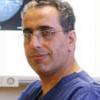Researchers from the Indiana University-Purdue University in Indianapolis, USA have invented a new imaging device to detect breast tumours. The device is more cost effective and simpler than current detection techniques. The researchers, who published the study in the International Journal of Computer Aided Engineering and Technology, believe that this could lead to earlier diagnosis of breast cancer than with mammography.
 The new system uses a small antenna which is worn by patients against the skin to avoid the microwave signal loss found in other diagnostic techniques. Breast tumours are detected by the strength of microwave signals which are three times greater in tumours than healthy tissue. The device is to be further developed into a bra which could be worn to detect cancerous tissue and whilst this could enable earlier detection and diagnosis of breast cancer, it is likely to be used alongside traditional mammography screening methods.
The new system uses a small antenna which is worn by patients against the skin to avoid the microwave signal loss found in other diagnostic techniques. Breast tumours are detected by the strength of microwave signals which are three times greater in tumours than healthy tissue. The device is to be further developed into a bra which could be worn to detect cancerous tissue and whilst this could enable earlier detection and diagnosis of breast cancer, it is likely to be used alongside traditional mammography screening methods.
The team, part of the Integrated Nanosystems Development Institute, wrote that it “…has been well recognized that the early detection of breast cancer by regular breast screening increases the survival rate among breast cancer patients.” The current breast screening methods result in a high rate of false positives and it is hoped that the microwave antenna will accompany the mammography to establish which results are false positives to prevent unnecessary biopsies.








